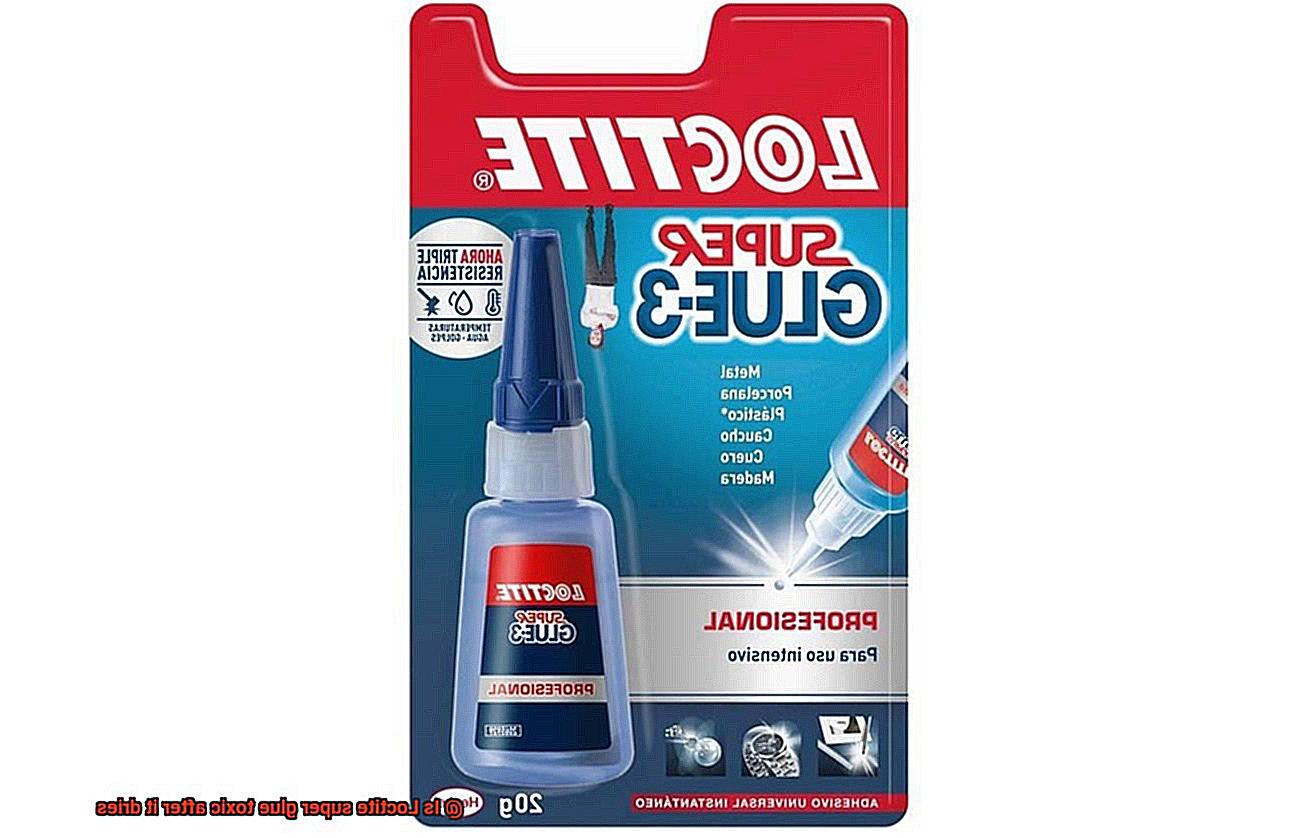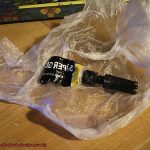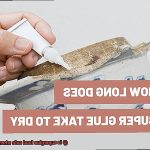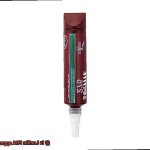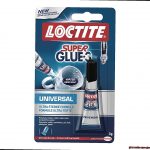Super glue has become the unsung hero of our fast-paced world, saving the day by fixing broken items in a flash. And when it comes to trustworthy brands, Loctite stands head and shoulders above the rest with its unmatched strength and reliability.
But here’s the burning question that keeps DIY enthusiasts, parents, and craftsmen up at night: is dried Loctite super glue secretly toxic? Are we unknowingly putting ourselves at risk?
In this blog post, we’re going to dive deep into the science behind Loctite super glue to uncover the truth about its post-drying toxicity.
So grab a cuppa, kick back, and let’s separate fact from fiction once and for all.
What is Loctite Super Glue?
Contents
- 1 What is Loctite Super Glue?
- 2 Toxicity of Wet Loctite Super Glue
- 3 Dried Loctite Super Glue: Non-Toxic and Safe?
- 4 Ingesting Loctite Super Glue
- 5 Safety Precautions when Using Loctite Super Glue
- 6 Medical Attention in Case of Accidental Exposure or Ingestion
- 7 Minimizing Potential Risks associated with Using Loctite Super Glue
- 8 Manufacturer Instructions for Use of Loctite Super Glue
- 9 Conclusion
With its fast-drying formula, exceptional strength, and versatility, Loctite Super Glue has become an essential tool in every toolbox. This article unveils the features, benefits, and precautions of this remarkable adhesive, showcasing why it is the ultimate choice for various applications.
Fast-Drying Formula:
Loctite Super Glue’s rapid-drying formula ensures immediate use of bonded items, making it perfect for time-sensitive repairs and small projects. No longer will you have to wait hours to see results; Loctite Super Glue delivers instant bonding power.
Chemical Composition and Strength:
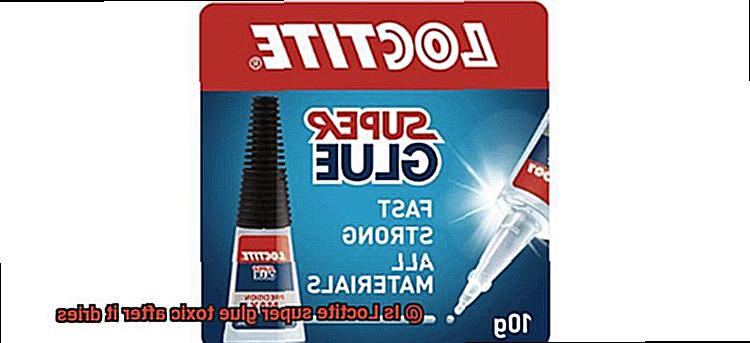
The secret behind Loctite Super Glue’s robust bonding properties lies in its unique chemical composition. Powered by cyanoacrylate, an acrylic resin, this adhesive hardens upon contact with moisture, forming an unbreakable bond. Once dry, it withstands substantial pressure and pulling force, making it suitable for a wide range of applications.
Versatility:
Loctite Super Glue excels in versatility, bonding materials such as metal, plastic, rubber, ceramic, and select fabrics. From fixing broken household items to intricate craft projects, this adhesive is indispensable. However, keep in mind that certain plastics may not bond well with Loctite Super Glue; always check compatibility before use.
Resistance to Temperature and Moisture:
Designed to endure extreme temperatures and moisture without compromising its adhesive properties, Loctite Super Glue thrives indoors and outdoors. Whether you’re repairing a broken item inside or tackling a project under the scorching sun or freezing cold, count on Loctite Super Glue to maintain its strength.
Safety Precautions:
While Loctite Super Glue is generally safe, handle it with care to minimize potential risks. In its wet state, the fumes can irritate the skin, eyes, and respiratory tract. However, once dried, the glue becomes inert and non-toxic. Avoid ingesting the wet glue and seek immediate medical attention if accidental ingestion occurs.
Toxicity of Wet Loctite Super Glue
Today, we embark on a captivating journey through the world of Loctite Super Glue. This extraordinary adhesive possesses unparalleled bonding capabilities, yet it hides potential toxicity risks when wet. Buckle up as we uncover the hidden dangers of wet Loctite Super Glue and learn how to navigate its treacherous waters.
The Untamed Beast:
When wet or uncured, Loctite Super Glue conceals chemicals that can unleash havoc on your health if mishandled. Its primary active ingredient, cyanoacrylate, with its formidable bonding powers, also harbors a darker side – capable of causing irritation and allergic reactions in susceptible individuals.
Skin and Eye Contact:
Approach wet Loctite Super Glue like a stealthy ninja – avoiding direct contact is crucial. This adhesive’s touch can release a fiery burning sensation, redness, swelling, and even unsightly blisters. To keep your precious skin and delicate eyes unscathed, swift action must be taken if any of these symptoms arise.
The Forbidden Feast:
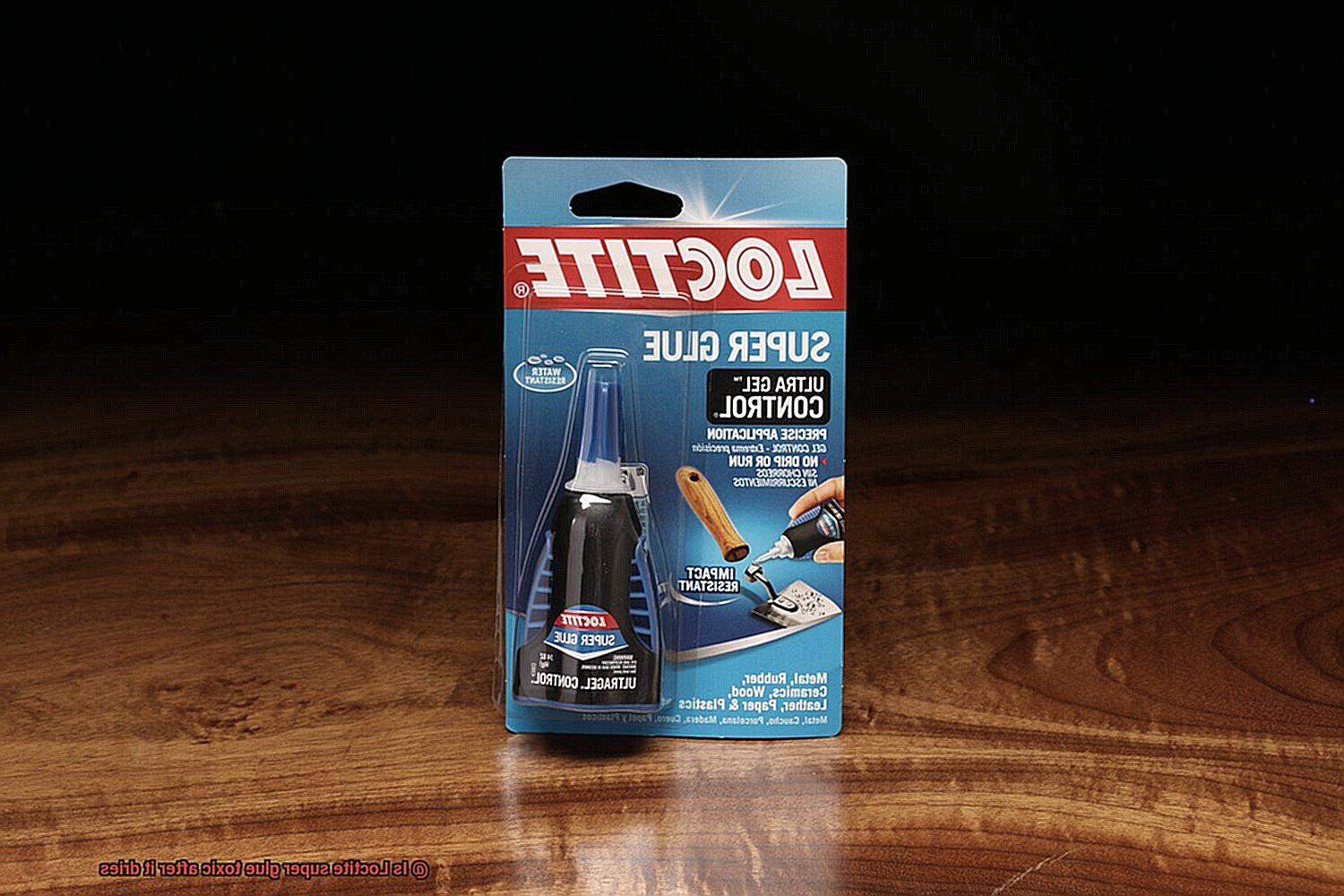
Indulging in a mouthwatering bite of wet Loctite Super Glue is a recipe for disaster. It poses a choking hazard that can obstruct your digestive system, leading to perilous complications. Remember, this adhesive is not on the menu for humans or our four-legged companions.
The Fumes Factor:
Ventilation becomes your ally. Exercise caution when using wet Loctite Super Glue in poorly ventilated spaces. Inhaling excessive fumes may result in respiratory irritation – not the kind of inspiration you seek from an adhesive superhero.
When It All Dries:
Once dry and cured, Loctite Super Glue undergoes a transformation into an inert substance – safe for everyday use. Its bond becomes unbreakable, and it no longer releases harmful chemicals into the environment. However, remain cautious of potential mechanical obstructions and irritation if ingested or applied to sensitive areas.
Dried Loctite Super Glue: Non-Toxic and Safe?
Today, we embark on a captivating journey to unveil the truth about the safety of dried Loctite Super Glue.
Have you ever wondered if this adhesive poses any risks once it has fully cured? We are here to shed light on this intriguing topic and put your concerns to rest.
The Curing Process: Unveiling the Transformation
Prepare to be amazed as we delve into the captivating transformation that occurs during the curing process of Loctite Super Glue. As it dries, solvents embark on an ethereal journey, evaporating into thin air.
Simultaneously, the adhesive undergoes a remarkable polymerization process, solidifying into an unyielding bond. This crucial metamorphosis ensures that any potential toxic substances or chemicals present in the glue become inactive and harmless.
Non-Toxic and Safe: An Assurance From Loctite
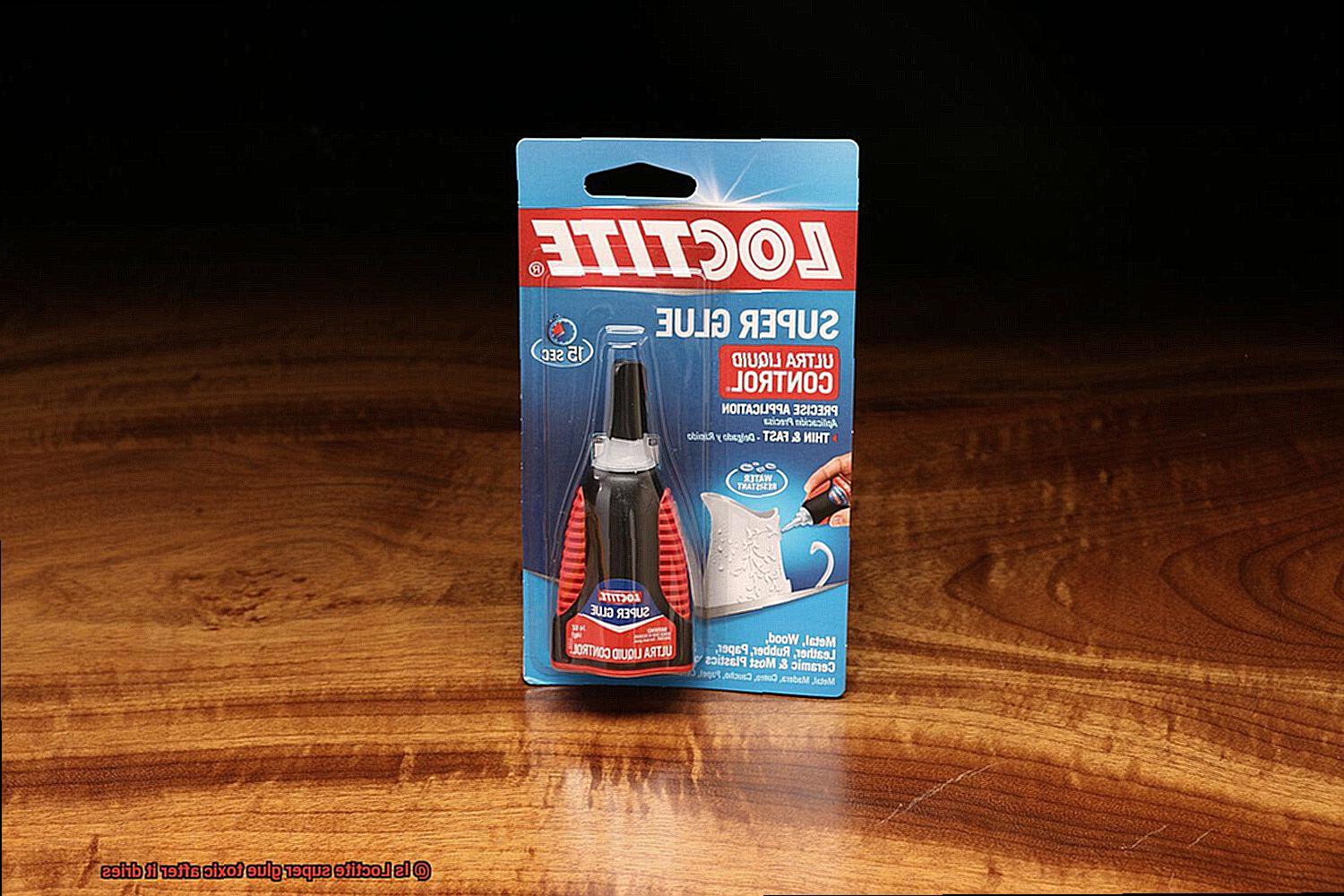
Rejoice, for Loctite assures us that their super glue products are non-toxic and safe once fully cured. Rest easy, as dried Loctite Super Glue poses no significant health risks when used properly. However, it is vital to exercise caution and follow a few guidelines to ensure your utmost safety.
Avoid Direct Contact: A Gentle Reminder
While dried Loctite Super Glue is generally considered safe, it is advisable to handle it with utmost care and avoid direct contact with your precious skin or delicate eyes. In case of accidental contact, promptly cleanse the affected area with warm soapy water. And remember, if necessary, seek medical attention for peace of mind.
Read Instructions Carefully: A Pathway to Safety

Embrace the wisdom bestowed upon us by Loctite’s experts. Always read and diligently follow the manufacturer’s instructions and precautions when using any adhesive product, including Loctite Super Glue. By adhering to these guidelines, you ensure optimal safety during application, leaving no room for doubt.
Allergic Reactions: A Sensitivity Reminder
Let’s acknowledge that individual uniqueness extends beyond artistic endeavors. Some individuals may experience allergic reactions or sensitivities to specific chemicals present in adhesives. To mitigate this risk, conduct a patch test on a less sensitive area before embarking on extensive applications. This simple gesture can save you from any unwelcome surprises.
Ingesting Loctite Super Glue
We all know the power of Loctite Super Glue in fixing things around the house, but few are aware of the potential dangers it poses when ingested.
In this comprehensive guide, we will explore the risks associated with ingesting Loctite Super Glue.
The Dangers of Cyanoacrylate:
Loctite Super Glue contains a potent adhesive known as cyanoacrylate. This remarkable ingredient forms an incredibly strong bond when it comes into contact with moisture. However, when swallowed, cyanoacrylate reacts with the moisture present in the mouth, throat, and gastrointestinal tract, leading to the formation of a solid mass.
Symptoms to Watch Out For:
Accidental ingestion of Loctite Super Glue can result in a range of distressing symptoms. These may include difficulty swallowing, chest pain, nausea, vomiting, abdominal pain, and constipation. In severe cases, ingestion can even lead to medical emergencies such as esophageal or intestinal perforation.
Seeking Immediate Medical Attention:
If you or someone you know ingests Loctite Super Glue, swift medical attention is critical. Healthcare professionals may need to perform procedures like endoscopy or surgery to remove the glue mass and alleviate any potential obstructions. Remember, prevention is the key. Always store Loctite Super Glue out of reach of children and follow the manufacturer’s instructions diligently.
Preventing Accidental Ingestion:
To further minimize the risk of accidental ingestion, it is crucial to avoid chewing on objects that have been glued with Loctite Super Glue. Even small amounts of this adhesive can be released and potentially ingested.
Safety Precautions when Using Loctite Super Glue
Loctite Super Glue is a remarkable adhesive that can bond objects together in a matter of seconds. However, it is crucial to prioritize safety when using this powerful product to avoid any potential health hazards.
By following a few simple precautions, you can ensure that you use Loctite Super Glue correctly and safely.
- Handle with care: Loctite Super Glue is incredibly strong and can bond skin together instantly. To prevent accidental contact, always wear protective gloves when using the adhesive. However, if you do get it on your skin, don’t panic. Simply rinse the affected area with plenty of water and seek medical attention if necessary.
- Work in a well-ventilated area: During the curing process, Loctite Super Glue emits fumes that can be irritating to the respiratory system. To ensure proper air circulation, it is best to use this adhesive in a room with open windows or doors. If you start feeling lightheaded or experience difficulty breathing, take a break and go outside for some fresh air.
- Keep out of reach of children and pets: Loctite Super Glue should always be stored in a secure location, far out of reach from curious hands or paws. Ingesting or inhaling super glue can lead to serious health complications, so it is absolutely crucial to keep it away from children and pets.
- Read and follow instructions: Each variant of Loctite Super Glue may have specific instructions regarding usage and safety precautions. Take the time to read the instructions provided by the manufacturer carefully. Following these guidelines will minimize the risk of accidents or injuries.
- Protect surfaces: Accidental spills or drips can happen, even with the most experienced users. To prevent the glue from adhering to unintended objects or causing damage, use a protective barrier such as newspaper or plastic sheeting when working with Loctite Super Glue. This simple precaution can save you a lot of frustration and potential damage.
- Test compatibility: Not all materials are suitable for bonding with Loctite Super Glue. Before applying it to the entire surface, test a small area first to ensure compatibility. This will help you determine if the adhesive is suitable for the material you are working with and avoid any unexpected results.
Medical Attention in Case of Accidental Exposure or Ingestion
Sometimes, that means accidental exposure or ingestion of substances we never intended to come in contact with. One such substance that may cause concern is Loctite super glue. While Loctite super glue is generally safe for use, it’s always important to take precautions and seek medical attention if necessary. So, let’s dive into a comprehensive guide on glue safety.
First things first, if you accidentally get Loctite super glue on your skin, time is of the essence. Quickly wash the affected area with warm soapy water. This can help remove some of the glue before it fully dries and hardens. But remember, harsh chemicals like acetone should be avoided as they can irritate or damage your skin.
Now, what if the glue has already dried and hardened on your skin? Whatever you do, resist the urge to pull or forcefully remove it. Instead, soak the area in warm soapy water for several minutes to soften the glue. Gently try to peel or roll it off your skin. If you’re having trouble, don’t hesitate to seek medical attention.
Accidental eye exposure to Loctite super glue is a serious matter. If this happens, act swiftly. Rinse your affected eye with clean water for at least 15 minutes. Keep your eye open and move it around to ensure thorough rinsing. Avoid rubbing your eye as this can worsen any potential damage. After rinsing, seek urgent medical attention – better safe than sorry.
Now, what about accidental ingestion? Don’t panic. While Loctite super glue is not meant for consumption and may cause gastrointestinal irritation, small quantities are generally non-toxic. However, if you’ve ingested a large amount or experience any adverse symptoms, seek immediate medical attention or contact a poison control center for guidance.
When seeking medical attention for accidental exposure or ingestion of Loctite super glue, provide as much information as possible. This includes the specific product name, a description of the incident, and any symptoms experienced. Medical professionals will then be able to assess the situation and provide appropriate advice or treatment.
Remember, Loctite super glue is designed for external use only. It should never be used on broken skin or intentionally ingested. Always read and follow the instructions and warnings provided by the manufacturer to ensure safe use.
Minimizing Potential Risks associated with Using Loctite Super Glue
When it comes to using Loctite Super Glue, it’s important to be aware of the potential risks involved. However, with the proper precautions, these risks can be minimized. Whether you’re a DIY enthusiast or someone who occasionally needs to fix things around the house, understanding how to use this adhesive safely is crucial for your well-being. In this comprehensive guide, we will explore the potential risks associated with Loctite Super Glue and provide practical tips on how to reduce them effectively.
Protect Your Skin:
- Avoid direct contact: Use tools or applicators when applying the glue to prevent it from coming into contact with your skin.
- Wear gloves: Provide an extra layer of protection by wearing gloves to minimize the risk of accidental skin contact.
Safeguard Your Eyes:
- Keep glue away from your eyes: Never use super glue near your eyes, as it can cause severe irritation or damage.
- Wear protective eyewear: Shield your eyes from splashes or drips by wearing safety goggles or glasses at all times.
Ensure Proper Ventilation:
- Work in a well-ventilated area: Super glue fumes can cause respiratory irritation, so make sure to work in a space with good airflow or use a fan to keep the air circulating.
- Avoid inhaling fumes directly: Refrain from breathing in the fumes directly to minimize any potential respiratory discomfort.
Prevent Ingestion:
- Store out of reach: Always store super glue out of the reach of children and pets.
- Seek immediate medical attention: If ingestion occurs, contact emergency services without delay.
Follow Manufacturer’s Instructions:
- Read and follow instructions: Carefully read and adhere to the manufacturer’s instructions for proper usage, application techniques, and recommended guidelines.
- Perform a compatibility test: Before using super glue on a larger surface, conduct a small compatibility test in an inconspicuous area to ensure it works well with the materials involved.
Be Prepared for Accidents:
Manufacturer Instructions for Use of Loctite Super Glue
The manufacturer’s instructions for using Loctite Super Glue are essential to ensure proper and safe use of this powerful adhesive. By following these instructions, you can achieve strong bonds and avoid any mishaps along the way.
To begin, the instructions provide crucial information on how to prepare the surfaces before applying the glue. It is important to ensure that the surfaces you’re bonding are clean, dry, and free from any contaminants. This step is crucial because a dirty or moist surface can prevent the glue from adhering properly, leading to weak bonds or even complete failure.
Once you’ve prepared the surfaces, the application process is straightforward. The instructions usually recommend applying a small amount of glue to one surface and then joining the two surfaces together firmly for a specified amount of time. It is important to follow these guidelines carefully to ensure that your bond is strong and durable.
However, it is crucial to allow sufficient curing time before subjecting the bonded item to any stress or load. Rushing this step can result in a weak bond that easily breaks apart. Therefore, patience is key when using Loctite Super Glue.
In addition to preparation and application, the manufacturer’s instructions also include important safety precautions. These may include wearing protective gloves or eyewear while working with the glue, ensuring you’re in a well-ventilated area, and keeping it out of reach of children or pets. These precautions are designed to protect you and those around you from any potential harm.
Lastly, the instructions may provide guidance on how to store the glue properly. Following these storage recommendations will help maintain the effectiveness of the glue and prevent accidents such as leakage or spills.
h1tbjyd2qjA” >
Also Read: Super glue safe to touch after it dries? : r/DnD
Conclusion
In conclusion, it is important to note that Loctite super glue is not toxic after it dries.
Once the glue has fully cured, it becomes an inert substance that does not release any harmful fumes or toxins. This means that you can use Loctite super glue with confidence, knowing that it will not pose a risk to your health or the environment.
However, it is still advisable to use caution when handling any type of adhesive and to follow the manufacturer’s instructions for safe usage.

